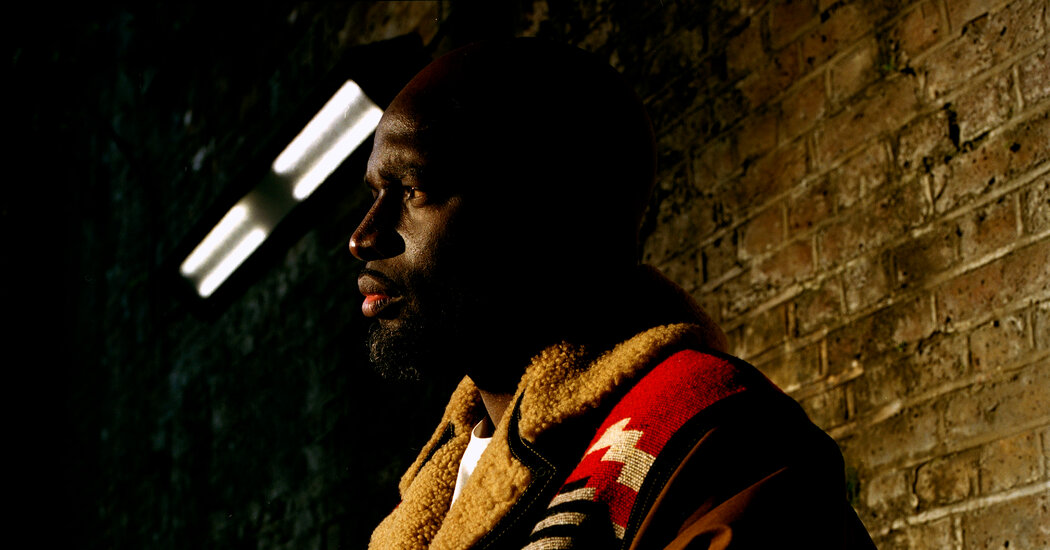
LONDON — For Aimée Felone, whose children’s bookstore in London stocks tales with ethnically diverse characters, the Black Lives Matter protests last summer were, in a word, overwhelming.
“We had attention like we’ve never had before,” Ms. Felone said. People across the country clamored for books about antiracism and sought out Black-owned businesses like her store, Round Table Books, as a way to help reverse years of economic racial inequality. In early June, the store’s sales went through the roof.
But pandemic restrictions had shuttered the store’s warehouse. After two weeks, the four-person team was struggling to fulfill online orders. A publishing company affiliated with the bookstore, which Ms. Felone also co-founded, sold out of every book it had published. New customers grew impatient.
“The sales were wonderful,” Ms. Felone said. The problem was “the additional stresses that I think a lot of people don’t realize they’re putting” on the small Black businesses they are trying to help.
Nearly a year after the peak of the protests, which may have been the largest social movement in U.S. history and quickly spread across the globe, businesses are looking for ways to convert that chaotic surge of interest into regular, reliable sales.
In Britain, one effort was created by Swiss, a British rapper. He calls it Black Pound Day, and the idea is simple: Once a month, people should spend money with Black businesses.
“It’s to bring money in and to try and circulate it within our community,” Swiss said in an interview. “You can’t always rely on the government,” he added, “so we’ve got to turn to ourselves and make solutions for ourselves. Black Pound Day is one of those solutions.”
Black Pound Days are held on the first Saturday of the month — the next one is May 1 — and there are some signs the idea is working. The first Black Pound Day, in June, caused a sudden jump in sales for participating companies — with some exceeding their previous month’s revenue in one day, according to a study conducted by Jamii, a company supporting Black businesses, and Translate Culture, a marketing agency.
Just as important, companies that have kept promoting themselves on Black Pound Day have continued to be rewarded each month with higher sales, said Khalia Ismain, the founder of Jamii.
The concept is a variation of other efforts to increase wealth among Black people by pooling resources. In the United States, the tradition dates back to Black banks founded after the Civil War, when Black Americans faced segregation and exclusion from financial services. More recently, people who migrated from the Caribbean after World War II to help rebuild Britain and work for its new National Health Service — known as the Windrush generation — dealt with discrimination by bringing over a form of savings and lending known as pardner. Small groups still use it to save together outside the banking system.
Swiss, 38, whose real name is Pierre Neil, grew up in South London. His grandparents had come to Britain from Barbados and Jamaica. At 17, he found fame with So Solid Crew, a garage and hip-hop group with dozens of members. In 2001, their song “21 Seconds” topped the British charts.
But the group’s reputation was always entwined with gang culture and violence — a point Swiss pushed back against in “Broken Silence,” a song he co-wrote describing how the group felt that it had been mistreated by the media and government and unfairly blamed for its low socioeconomic status.
“I’ve been making socially conscious tunes from back when I was a teenager,” Swiss said, adding that he was inspired by the rappers Tupac and Nas.
Today in Business
Swiss said he had mulled over the idea for Black Pound Day for years, noting how few businesses that Black people appeared to own.
Even if Black Pound Day is a simple idea, it is chipping away at a complicated problem. Just 5 percent of small and medium-size businesses in Britain have Black, Asian or other ethnic minority owners. A study by the British Business Bank, a state-owned bank supporting small businesses, and the consulting firm Oliver Wyman found that entrepreneurs who come from an ethnic minority background face systemic disadvantages, and that the average annual revenue for a Black entrepreneur was 10,000 pounds less than it was for white business owners in 2019.
There are numerous barriers to entrepreneurial success, but one of the most stark is how difficult it is to get funding. Just 0.02 percent of venture capital money invested in Britain from 2009 to 2019 went to Black female founders. That’s 10 women in a decade.
Those barriers contribute to large income and wealth gaps between Black and white households in Britain. The total wealth for a median household headed by a white British person (including property, investments and pension) is £313,900 ($436,000). For a Black Caribbean household, it’s £85,900 and just £34,000 for a Black African household, the national statistics agency estimates.
Ms. Ismain, the founder of Jamii, which offers a one-stop shopping site for Black businesses, said her organization and initiatives like Black Pound Day sought to remind consumers to keep Black businesses in mind even when antiracism protests weren’t front-page news.
“When it’s not trending, you don’t always think about it, you fall into old habits, and if you can’t find alternatives to things you are already buying anyway it’s just not very sustainable,” Ms. Ismain said. “That’s the thought process behind Jamii — making it super easy to find businesses.”
For Afrocenchix, a hair care brand for natural Afro hair, Black Pound Day has been transformative. Every month on Black Pound Day, the company gets two or three times its normal sales. To promote the day, it offers customers free delivery and a packet of tea and biscuits — a.k.a. cookies in the United States — with their order.
“We got trolled a bit on the first Black Pound Day by lots of people telling us we were racist and not British,” said Rachael Corson, a co-founder of Afrocenchix. So in response, she said, she and her co-founder, Joycelyn Mate, thought: “What’s more quintessentially British than tea and biscuits?”
Since the first Black Pound Day, they have doubled their number of customers, and in 2020, Afrocenchix’s sales were five times that of the previous year.
“It made a huge difference in terms of brand awareness for us,” Mrs. Corson said.
And the influx of customers and revenue should help Afrocenchix’s founders with their next goal of overcoming the venture capital fund-raising odds. They are trying to raise £2 million.
For others, the advantages of Black Pound Day have dipped with time, and they speculate that consumer interest has been spread across more Black businesses. But Natalie Manima, the founder of Bespoke Binny, a housewares brand sold online, said the attention her company had gotten since people sought out Black-owned retailers during last summer’s protests had been “life changing.”
The interest “didn’t end,” Ms. Manima said. “It’s not the same barrage that it was, but I have not ever gone back to pre-protest level of sales.”
She recalled the day in early June when she woke up to hundreds of orders for her products, which include lampshades, oven mitts and blankets. It took her a few days to track the source of the surge — a list of Black-owned businesses circulating on Instagram at the height of the Black Lives Matter protests.
Because Britain was under lockdown, the manufacturer of her products was closed, as was her daughter’s nursery school. So Ms. Manima was packing orders herself, late at night and early in the morning, until she sold out of everything and had to pause taking orders.
But once the manufacturers reopened and her business was running smoothly again, customers have kept coming back. She has since moved into a larger office (twice) and hired a team.
“I have gone from a one-woman show to this, and I know that it’s all down to what happened in June,” she said.
That said, the experience at Round Table Books, the children’s bookstore, is a testament to how hard it can be to permanently alter people’s spending habits, even with the help of initiatives like Black Pound Day. The store has been shut all winter in line with government restrictions. It sells books online, but it’s still hard to compete against giants like the British bookseller Waterstones and Amazon.
“When you don’t have the physical bookshops open, I find that a lot of the attention goes to the bigger brands,” Ms. Felone said. But she said that the store will reopen in early May and that she still supported Black Pound Day.







